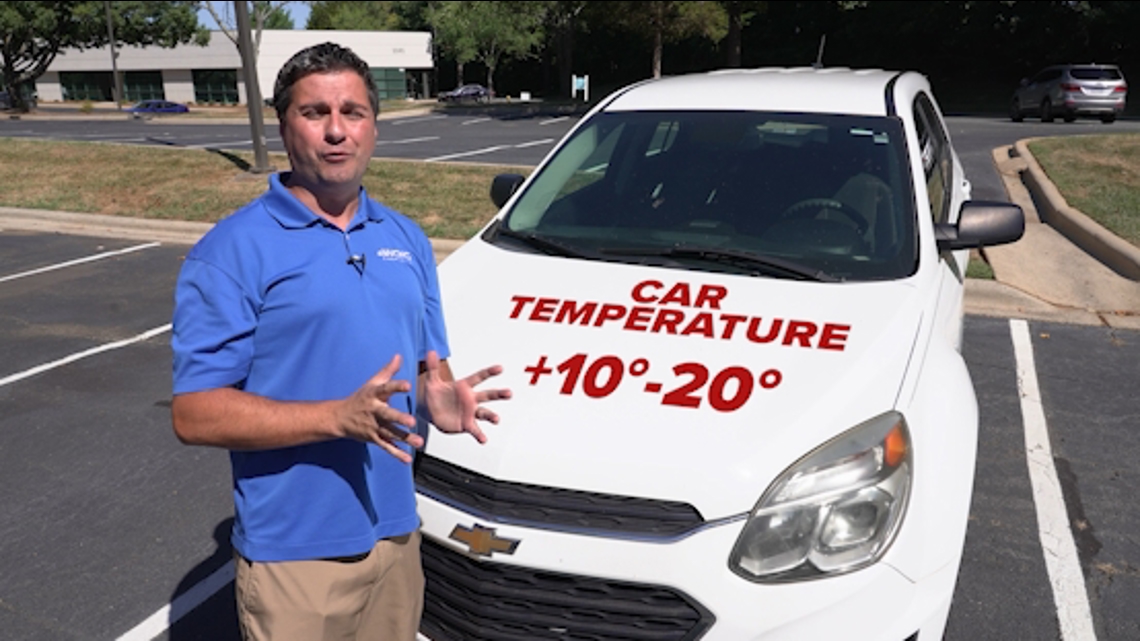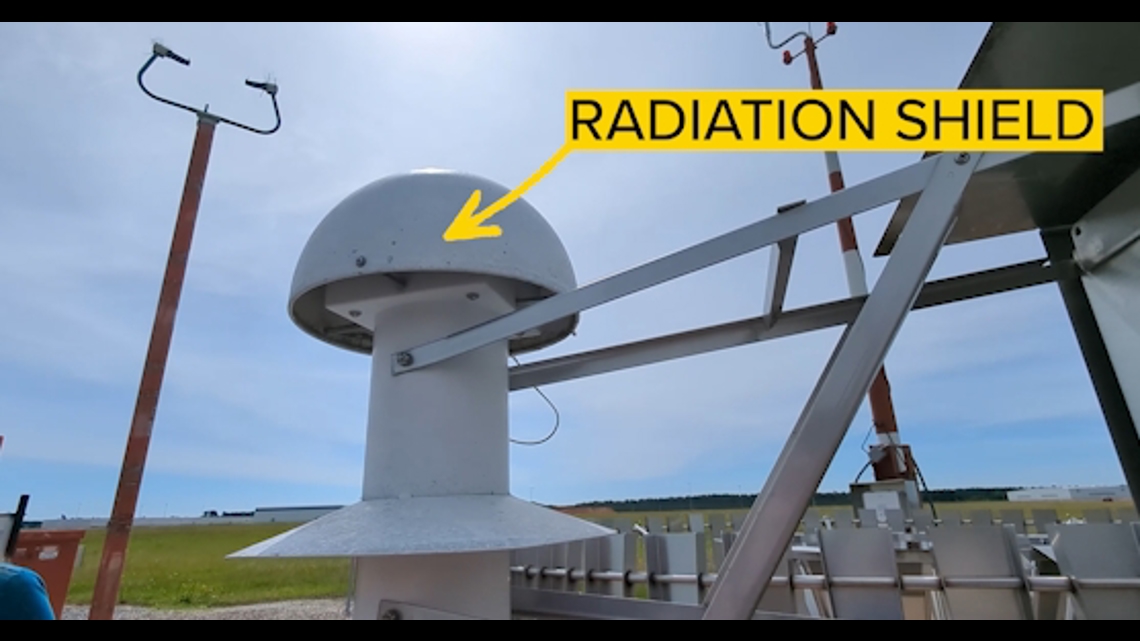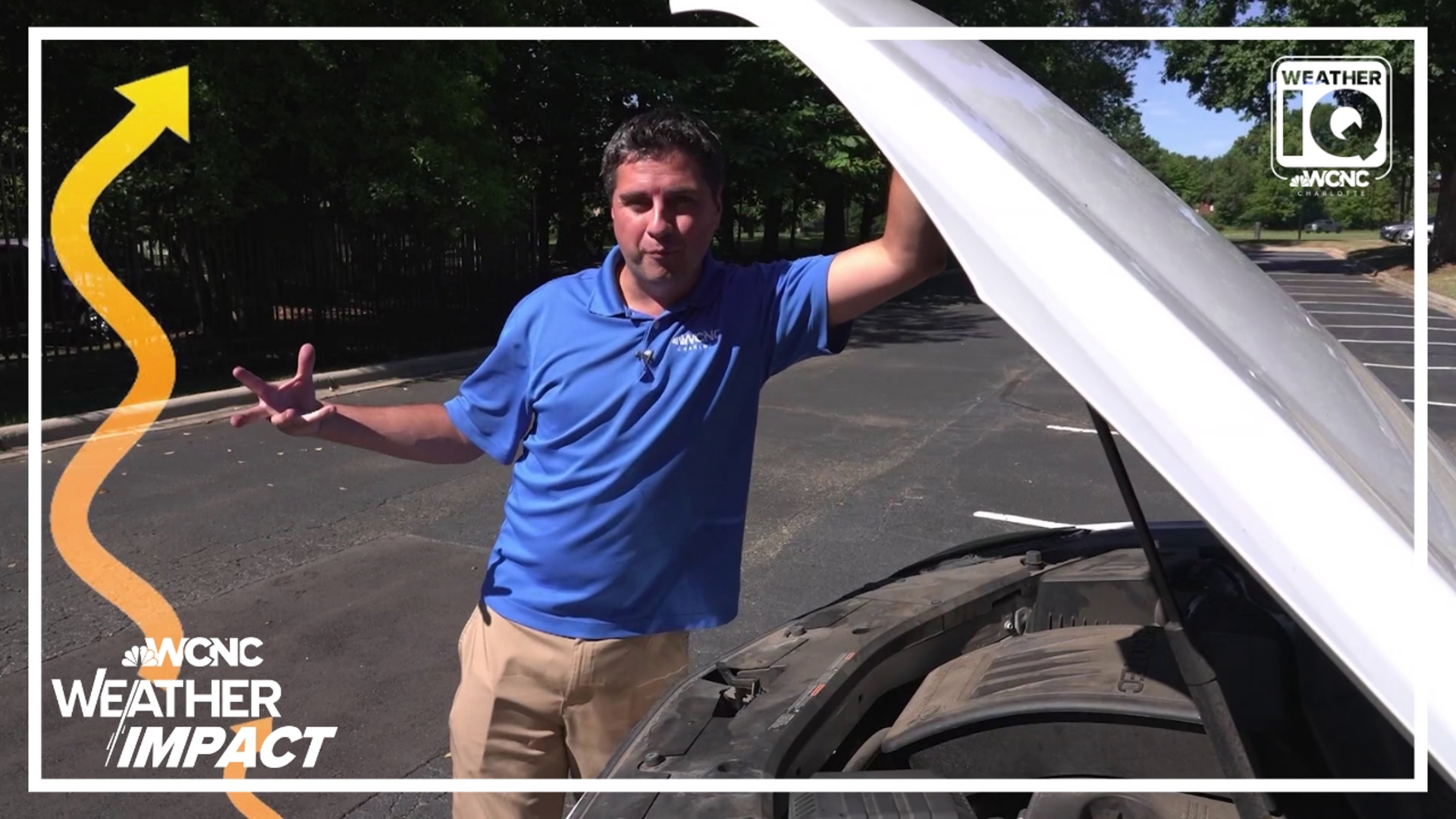CHARLOTTE, N.C. — This has been one of the hottest first halves of July in Charlotte history peaking at 101 degrees on July 5. But your car's tiny thermometer isn't trustworthy when it comes to gauging temperatures.
Why your car thermometer is inaccurate
When you get in your car and look at the dash, that temperature you see doesn't actually use a thermometer but rather something called a thermistor. The name comes from a combination of the words thermal and resistor. It measures temperature based on electrical current changes as heat is added or removed.
The problem is most car's thermistors are located behind the vehicle's grill, leaving it exposed to heat radiated off of the road's surface and the engine, and that can run around 200 degrees. This makes your car's display temperature about 10 to 20 degrees warmer when you get in your car after it’s been sitting on a hot summer day.


Black top surfaces conduct the most heat and will lead to those crazy high car temperature pictures you see on social media. This temperature decreases as you drive around and becomes more accurate when you travel at higher speeds, but when you get stopped in standstill traffic, the temperature will go back up.
This is why the official temperature taken at the airport is measured away from any pavement because even those digital thermometers you see at local banks tend to be hotter if there's a parking lot nearby.
An accurate air temperature is measured above the ground in complete darkness with a radiation shield so sunlight doesn’t skew the sensors results.


Is there a time you can depend on your car for temperatures?
It won’t be 100% correct, but a car's thermistor is most accurate at night after the sun has set and gives better readings on overcast days. So bottom line, your car's dashboard thermometer is not accurate.
Contact Chris Mulcahy at cmulcahy@wcnc.com and follow him on Facebook, X, Instagram and TikTok.
WCNC Charlotte’s Weather IQ YouTube channel gives detailed explainers from the WCNC Weather Impact Team meteorologists to help you learn and understand weather, climate and science. Watch previous stories where you can raise your Weather IQ in the YouTube playlist below and subscribe to get updated when new videos are uploaded.

